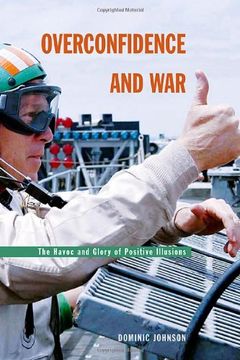Share
Overconfidence and war - the Havoc and Glory of Positive Illusions (in English)
Dominic D. P. Johnson (Author)
·
Harvard University Press
· Hardcover
Overconfidence and war - the Havoc and Glory of Positive Illusions (in English) - Dominic D. P. Johnson
$ 22.80
$ 28.50
You save: $ 5.70
Choose the list to add your product or create one New List
✓ Product added successfully to the Wishlist.
Go to My WishlistsIt will be shipped from our warehouse between
Monday, June 17 and
Tuesday, June 18.
You will receive it anywhere in United States between 1 and 3 business days after shipment.
Synopsis "Overconfidence and war - the Havoc and Glory of Positive Illusions (in English)"
Opponents rarely go to war without thinking they can win--and clearly, one side must be wrong. This conundrum lies at the heart of the so-called "war puzzle": rational states should agree on their differences in power and thus not fight. But as Dominic Johnson argues in Overconfidence and War, states are no more rational than people, who are susceptible to exaggerated ideas of their own virtue, of their ability to control events, and of the future. By looking at this bias--called "positive illusions"--as it figures in evolutionary biology, psychology, and the politics of international conflict, this book offers compelling insights into why states wage war. Johnson traces the effects of positive illusions on four turning points in twentieth-century history: two that erupted into war (World War I and Vietnam); and two that did not (the Munich crisis and the Cuban missile crisis). Examining the two wars, he shows how positive illusions have filtered into politics, causing leaders to overestimate themselves and underestimate their adversaries--and to resort to violence to settle a conflict against unreasonable odds. In the Munich and Cuban missile crises, he shows how lessening positive illusions may allow leaders to pursue peaceful solutions. The human tendency toward overconfidence may have been favored by natural selection throughout our evolutionary history because of the advantages it conferred--heightening combat performance or improving one's ability to bluff an opponent. And yet, as this book suggests--and as the recent conflict in Iraq bears out--in the modern world the consequences of this evolutionary legacy are potentially deadly.
- 0% (0)
- 0% (0)
- 0% (0)
- 0% (0)
- 0% (0)
All books in our catalog are Original.
The book is written in English.
The binding of this edition is Hardcover.
✓ Producto agregado correctamente al carro, Ir a Pagar.

